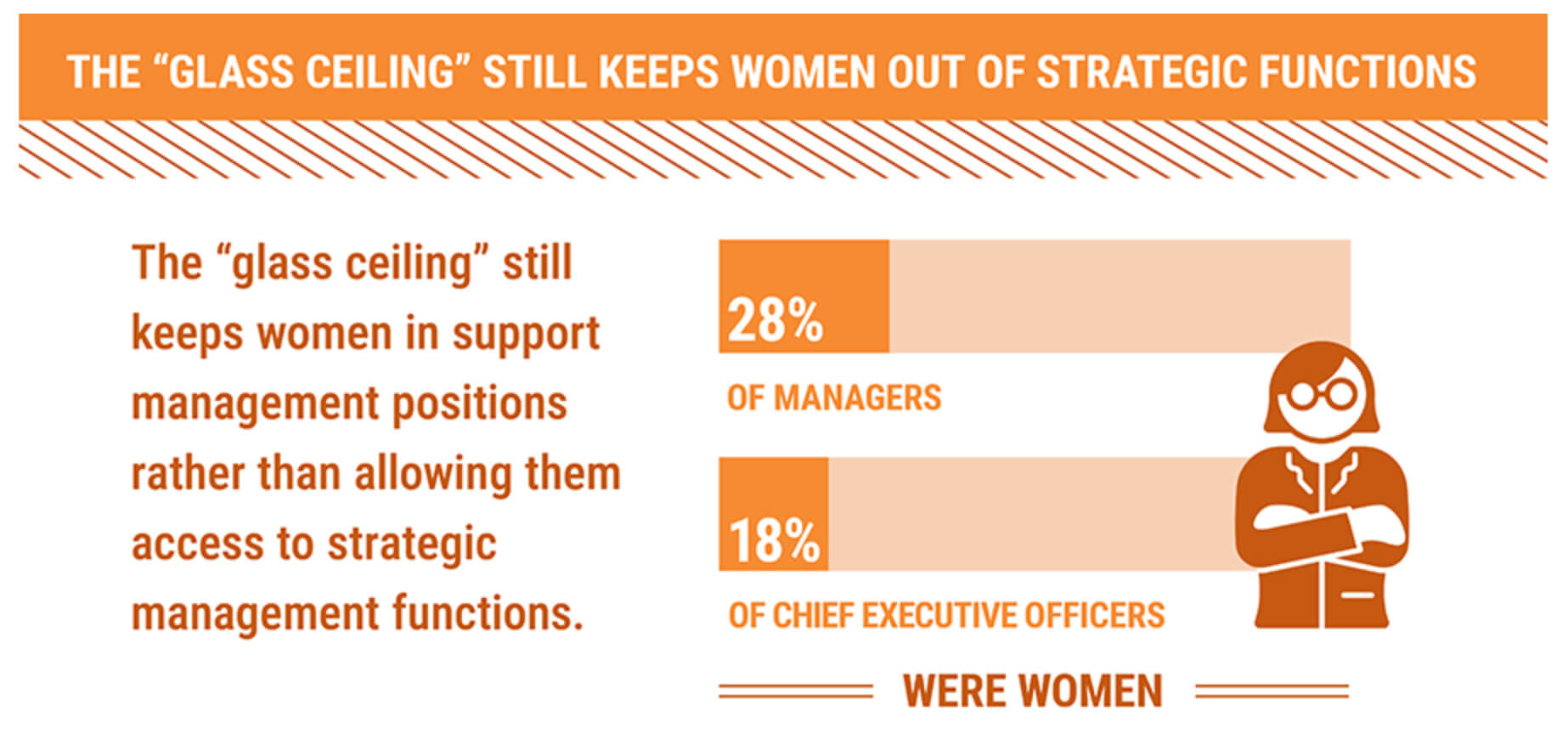On International Women’s Day we acknowledge women’s achievements and advancements towards gender parity. Currently, women are better educated and more active in the labour force than ever before. Nevertheless, obstacles, such as the glass ceiling, still persist and hinder women’s pursuit of a meaningful and prosperous career, keeping women in support management positions rather than paving their ways to more strategic management functions. Only 28% of managers and 18% of Chief Executive Officers were women as of 2020.

Advocating and investing in young women’s skills development is an urgent and effective approach to advance on gender equality and poverty eradication. Given that two-thirds of the world’s 773 million illiterate adults are women, changing this scenario means that equal access to education and skills development programmes must be fostered and traditional gender roles weakened.
In male-dominated fields such as STEM (science, technology, engineering, and mathematics), the percentage of women’s participation can be concerning, in some regions more than others. According to a report made by the European Training Foundation, in Serbia, for example, one woman in every five are graduates in STEM fields per year. In Kyrgyzstan or Palestine, only one in 10.
Related Articles: Promoting Gender Equality for Industrial Development | Investing in technical skills of young men and women for poverty alleviation
Almost 75% of the enterprises worldwide have equal opportunities or diversity and inclusion policies in place. But according to ILO research, these policies alone are not enough to fix the gender imbalance at the top levels of business. Because the obstacles women face when climbing the career ladder is a combination effect of traditional glass-ceiling created by discriminatory policies, a business culture of constant availability, and a myth of gender roles and characteristics.
Acknowledging that women face several tangible and intangible challenges to have access to the same professional opportunities as men is the first step to shifting the prevailing reality. Evidence has shown that empowering women with demand-oriented skills contributes directly to a more inclusive and sustainable future. And since enterprises often see attraction and retention of skilled women as a challenge for their business, investing in effective and efficient skills development for women can speed up the process of expanding the female talent pool.
A photograph from a CEO lunch at this year’s Munich Security Conference yet again demonstrated who continues to run the world.
— #AJOpinion by @MariaBelen_Fdez https://t.co/eMh6Gqf3Rs
— Al Jazeera English (@AJEnglish) March 8, 2022
If we are serious about changing the type of photograph featured in the headlines about the Munich Security Conference, which shows exclusively men representing corporate Germany, a lot should be done. Enterprises need to revisit their organization of work to ensure a more flexible and enabling work-life balance. Economies need to better harness women’s workforce contribution for sustainable growth while programmes and policies for women’s skills development need to be given the proper attention and rank higher on decision-makers’ agendas.
UNIDO and the LKDF
UNIDO’s LKDF promotes demand-oriented skills development programmes for young people in developing and emerging industrial economies to achieve inclusive and sustainable industrial development. To do that, we all need to change mindsets and behaviours and adjust priorities. Gender equity can only benefit economies. Tackling gender inequality in skills development and job opportunities is key to the achievement of the Sustainable Development Goals (SDGs) of the 2030 Agenda.
If you or your organization would like to take action, do not hesitate to contact the LKDF team at lkd-facility@unido.org to learn how to engage in partnerships, projects, and advocacy activities. Together, we can better embrace the challenges and foster development for a better future.
The European Training Foundation
The European Training Foundation (ETF) is an EU agency providing advice and assistance to partner countries in the development of their human capital through the reform of education, training and labour market systems in the context of the EU external relations policy. The ETF promotes gender equality in supporting policy reform in education and skills development and gender mainstreaming therein. Examples of their work can be found here.
Editor’s Note: The opinions expressed here by Impakter.com columnists are their own, not those of Impakter.com. In the Featured Photo: A woman speaking on the phone and looking at a laptop. Featured Photo Credit: Shutterstock.










